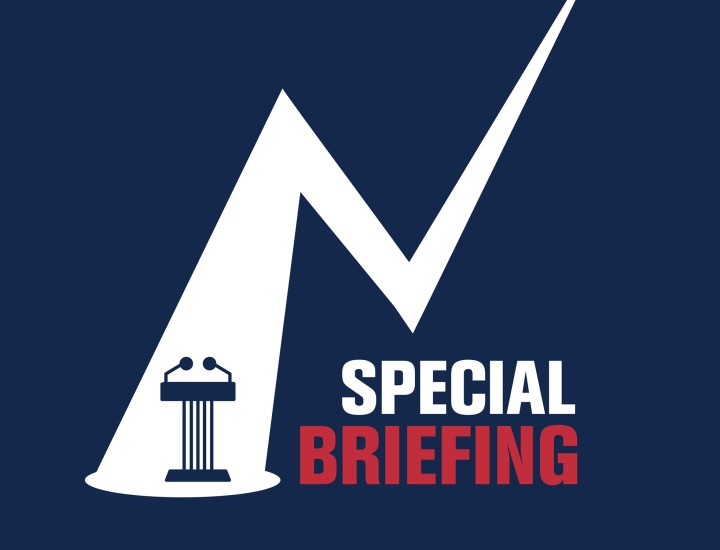Special Briefing: America's $900 Billion Water Crisis
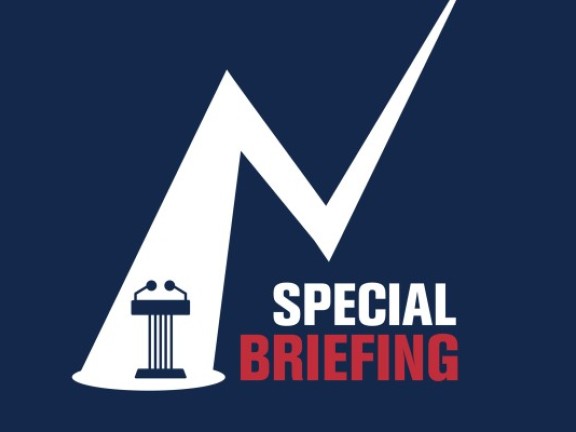
While the 2021 Bipartisan Infrastructure Law provides $50 billion to upgrade America’s drinking water, wastewater, and stormwater systems, much more will be needed to address the nation’s water infrastructure needs amid a changing climate and shifts in population. The Environmental Protection Agency estimates the US will need almost $900 billion in water investment over the next twenty years, plus hundreds of billions more for maintenance. These sums will burden federal, state and local budgets but also pose new opportunities—and risks—for investors in water projects.
Our panel of experts will include Senator Bill Bradley, former United States Senator, D-NJ; Doug Evanson, executive vice president and chief financial officer, San Antonio Water System; Howard Neukrug, executive director, The Water Center at the University of Pennsylvania; Nicole Lick, senior life scientist, water division, United States Environmental Protection Agency Mid-Atlantic Region; and Reese Tisdale, president and chief executive officer, Bluefield Research.
Moderated by William Glasgall, Volcker Alliance senior director, public finance and Penn IUR fellow, and Susan Wachter, co-director of Penn IUR, this briefing is the fifty-first in a series of sixty-minute online conversations featuring experts from the national research networks of the Volcker Alliance and Penn IUR, along with other leading academics, economists, and federal, state, and local leaders.
Special Briefings are made possible by funding from The Century Foundation, the Volcker Alliance, and members of the Penn IUR Advisory Board.
Recordings of the entire Special Briefings series are available on the Volcker Alliance website: SPECIAL BRIEFING SERIES ARCHIVE.
Be sure to subscribe to the Special Briefing podcast, available on Apple Podcasts, Spotify, Google Podcasts, TuneIn, iHeart Radio and more.
Also, be sure to subscribe to the Volcker Alliance newsletter and Penn IUR newsletter.
-----------------------------------------------------------------------------------------------------------------------------------------------------
"THE $900 BILLION QUESTION": FORMER SENATOR BILL BRADLEY, WATER INDUSTRY, AND PUBLIC FINANCE EXPERTS DISCUSS AMERICA'S WATER CRISIS
Panelists, Including Former Senator Bill Bradley (D-NJ), Discuss the Necessary Investments in Infrastructure to Maintain U.S. Water Supply and Mitigate Future Challenges
The discussion centered on the importance of robust infrastructure for sustainable water management, the need for federal support and innovation in financing and updating water projects, the challenges posed by aging infrastructure, and the integration of new technologies to address issues such as water scarcity, pollution, and the impact climate change continues to have on water resources.
“This is a time when water could actually bring people together because the need is so obvious,” said former U.S. Senator Bill Bradley (D-NJ). “There was bipartisan support for the infrastructure bill, and so this is a matter of modifying and taking that support and moving into something even more critical than roads and bridges –– our supply of water to areas of the country that don't have it.”
“It's amazing how much the water industry has changed in the last ten years and certainly 20 to thirty years looking back, but the concept of reusing water, particularly in the West and other parts of the world, is… new… it’s a technology that's growing,” said Howard Neukrug, Executive Director of The Water Center at the University of Pennsylvania. “Energy is the biggest user of water in the U.S., and water is the biggest user of energy in any city. So, a big part of the water industry right now is looking at how we become energy independent.”
Doug Evanson, Executive Vice President, and Chief Financial Officer, San Antonio Water System, discussed a new water supply project in San Antonio that was recently completed to meet the growing demand for freshwater thanks to a unique public-private partnership structure. His experience with the project may serve as a case study for successful water infrastructure development across the country.
“The VistaRidge water supply project [in San Antonio] has been recognized nationally as one of the largest public-private partnerships to be constructed in North America,” said Doug Evanson, Executive Vice President, and Chief Financial Officer, San Antonio Water System. “The project is essential for San Antonio meeting its demand requirements in 2023 and could not have been completed without the public-private partnership structure.”
“Ever since the Clean Water Act, since 1976, federal funding towards the water sector has shifted away from 15% to 5% now. [That funding gap] has been pushed on the local communities and local governments to address the challenges that they face,” said Reese Tisdale, President and Chief Executive Officer, Bluefield Research. “The pie is only so big, and it needs to be cut up into a number of different slices. According to Bluefield Research, when we look at it, we're looking at about $175 billion dollars of capital and operating expenditures that have to be paid out in a given year that will continue to rise.”
“Around Fifty-two years ago, the Clean Water Act resulted in $200 billion in federal water infrastructure investments over a 10-year period, and that investment was incredibly successful in cleaning up our water,” Nicole Lick, Senior Life Scientist, Water Division, United States Environmental Protection Agency Mid-Atlantic Region. “But it also means that our water infrastructure is aging and nearing the end of its lifespan and requires upgrades or replacement.”
-----------------------------------------------------------------------------------------------------------------------------------------------------
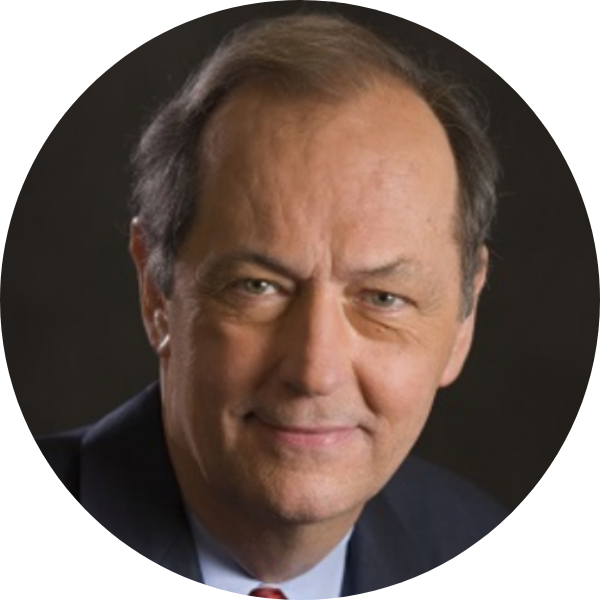
William W. Bradley is a managing director of Allen & Company LLC. From 2001 to 2004, he acted as chief outside advisor to McKinsey & Company’s nonprofit practice. He was a senior advisor and vice chairman of the International Council of JP Morgan & Co., Inc. from 1997 to 1999. During that time, he also worked as an essayist for CBS Evening News and was a visiting professor at Stanford University, the University of Notre Dame, and the University of Maryland.
Senator Bradley served in the US Senate from 1979 to 1997 representing the state of New Jersey. In 2000, he was a candidate for the Democratic nomination for President of the United States. Prior to serving in the Senate, he was a 1964 Olympic gold medalist and from 1967 until 1977, he played professional basketball for the New York Knicks, winning two NBA Championships. In 1982, he was elected to the Basketball Hall of Fame.
Senator Bradley holds a bachelor’s degree in American History from Princeton University and a master’s degree from Oxford University, where he was a Rhodes Scholar. He has authored seven books on American politics, culture, and economy, including his latest book, We Can All Do Better. Currently, Senator Bradley hosts American Voices, a weekly show on Sirius XM Satellite Radio that highlights the remarkable accomplishments of Americans, both famous and unknown.
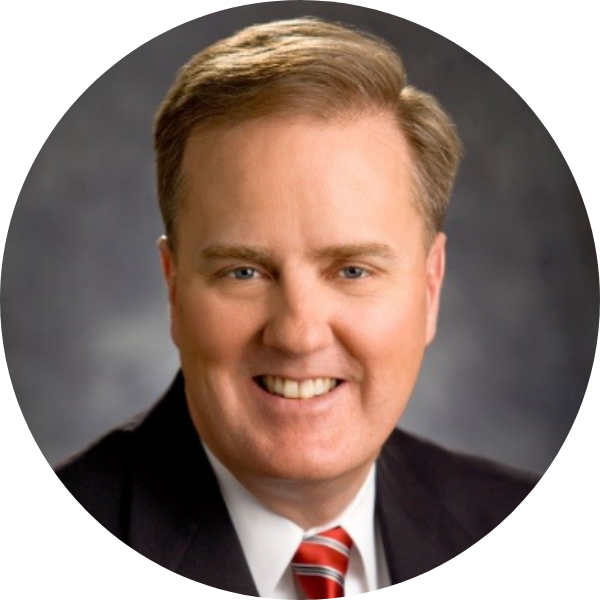
Doug Evanson was named Vice President and Chief Financial Officer at San Antonio Water System in April 2005. In this capacity he is responsible for the treasury, finance, purchasing, supply, and accounting activities of this municipally owned utility serving more than 2 million people in and around San Antonio. He also oversees the organization’s Information Systems department.
Prior to joining SAWS, Evanson worked in the private sector having held management positions with UtiliCorp United and Black & Veatch while also having served as the Chief Financial Officer for United Energy located in Melbourne, Australia. He has served on a number of Boards including the Greater San Antonio YMCA, the Montessori School of San Antonio and the San Antonio Chapter of Financial Executives International. He holds a Master of Business Administration from the University of Missouri-Kansas City and a Bachelor of Science (Accounting and Business Administration) from the University of Kansas. He and his wife Annette have two sons.
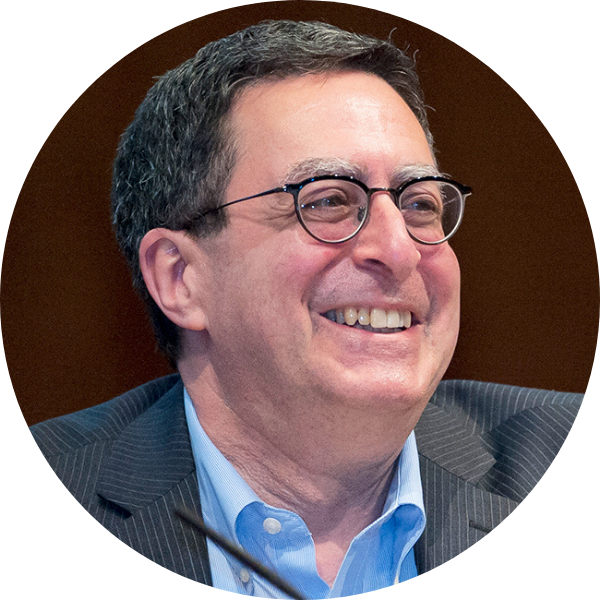 Howard Neukrug is the former Commissioner and CEO of Philadelphia Water, where he was responsible for all aspects of utility operations, environmental compliance, engineering, financing, budgeting, capital and strategic planning, customer service, human resources, and legal and policy decisions for its drinking water/wastewater/stormwater system serving 2.3 million people. At Penn, he is the director of the Water Center and teaching courses on the water industry and the role of water in urban sustainability and resiliency. He is also a Principal with CASE Environmental, LLC, where he provides consulting services to cities and utilities in urban planning, systems design, sustainability, organizational development, strategic planning and trends and innovations in the global water industry.
Howard Neukrug is the former Commissioner and CEO of Philadelphia Water, where he was responsible for all aspects of utility operations, environmental compliance, engineering, financing, budgeting, capital and strategic planning, customer service, human resources, and legal and policy decisions for its drinking water/wastewater/stormwater system serving 2.3 million people. At Penn, he is the director of the Water Center and teaching courses on the water industry and the role of water in urban sustainability and resiliency. He is also a Principal with CASE Environmental, LLC, where he provides consulting services to cities and utilities in urban planning, systems design, sustainability, organizational development, strategic planning and trends and innovations in the global water industry.
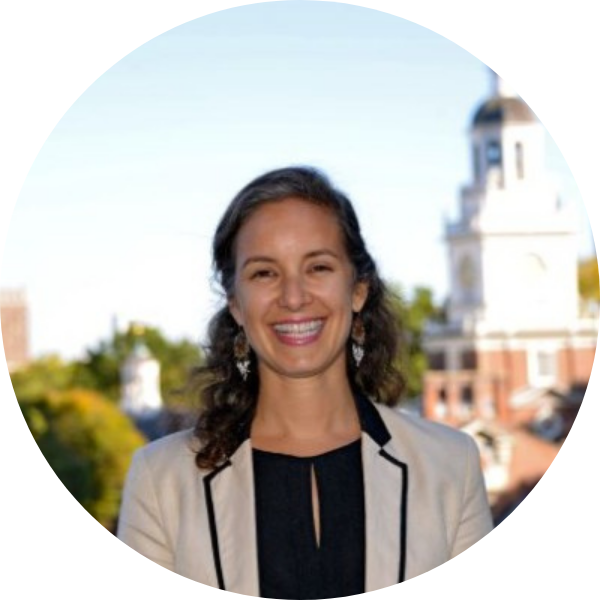
Nicole Lick is a Senior Life Scientist in the Water Division of Environmental Protection Agency’s Region 3 office in Philadelphia, PA. She serves as an advisor on the Delaware River Basin. She is a lead for engaging communities facing environmental injustice and for diversity, equity, inclusion, and accessibility. She serves as principal for continuous improvement and serves as the Water Reuse liaison. Nicole uses her prior experience at the Federal Emergency Management Agency to integrate hazard mitigation and climate adaptation into water quality improvement. She holds Master’s in Environmental Planning and Natural Resource Management from University of Pennsylvania and a Bachelor’s of Art in Government and Philosophy from Franklin and Marshall College. In her free time, Nicole likes to spend time outdoors, hiking, reading, running, enjoying live music, walking her dog or relaxing on the beach.
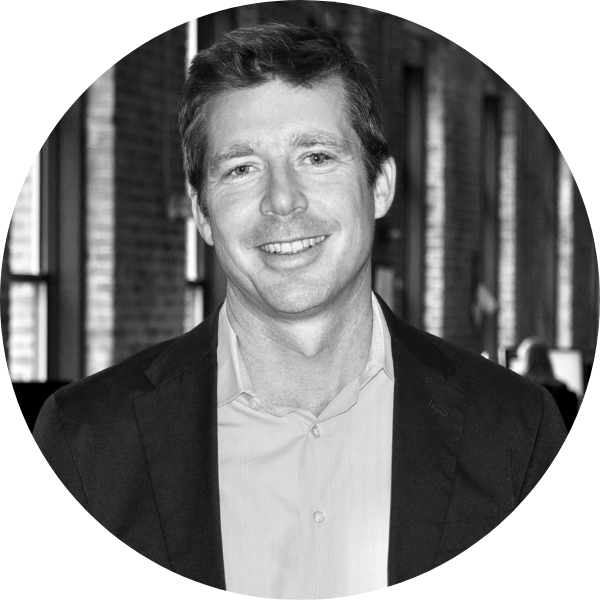
Reese Tisdale is the President & CEO of Bluefield Research, a leading market research and advisory firm specializing in water markets and company strategies. Prior to founding Bluefield, Reese held positions at IHS (now S&P Global), Fisher Scientific, Sunoco, and several environmental consultancies, focusing on soil and groundwater remediation for oil and gas companies. Additionally, he dedicated three years as a Peace Corps volunteer in El Salvador, leading water supply and agriculture projects following the country’s civil war. Reese received a Bachelor of Science degree from the University of the South in Sewanee, Tennessee, and a Master of International Business Administration from Thunderbird in Phoenix, Arizona.

